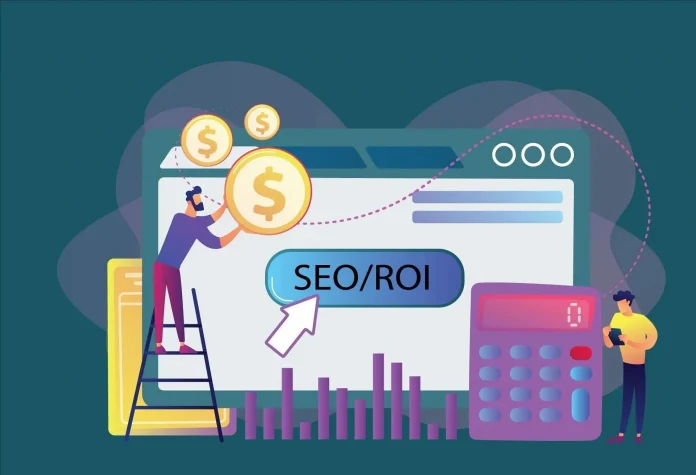When it comes to promoting your website online, being position #1 on Google for the most competitive phrases is the ultimate dream, right? But is it the be-all and end-all? For example, do you need to achieve position #1 rankings in order to make an ROI from SEO? Read on and we’ll take a closer look…
Do you need to be ranked #1 to make a return on your investment?
It’s not quite as straightforward as you might imagine, for example:
- It’s easy to rank #1 for low-volume search terms that have no competition.
- Ranking #1 won’t do you much good if your website’s UX is poor and unlikely to convert.
- The lower rankings on page #1 still receive decent traffic.
So, in this light, while ranking at #1 for the appropriate keywords can be incredibly valuable, you can still make an ROI from lower rankings as well. That, and there are many other metrics that you can measure for success, not just your ranking position (which we will cover shortly).
First, let’s take a quick look at the various page-one positions in a SERP and what their traffic percentages are…
Page one traffic percentages by position
- The first position of Google gets about 31.7% of the organic traffic.
- Position two gets 24.71%.
- Position three gets 18.59%.
Those percentages begin to drop considerably as you go lower down the page, however, position ten still receives 2.5% of the traffic. Now, while that doesn’t sound like much at all; for a keyword that averages 1,000 searches per month, you’ll be attracting 25 organic customers – and that’s just one keyword out of dozens of different variations.
Important SEO metrics to measure besides ranking
Remember, ranking is an important metric, but it doesn’t guarantee money:
- CTR (click-through rate)
- Conversions
- Pages per session
- Core web vitals
- Backlinks and referring domains
- Keywords ranked for
It’s all about the on-page experience
The point is, you can still make some good money through organic traffic to your website without sitting in all the top spots; positions 2, 3, 4, and 5 can all bring you some excellent value – provided your on-page experience is on point!
Take this scenario as an example:
- You type into Google: “SEO in Singapore” and click on the first link in the SERP
- The website takes longer than usual to load but you wait it out >
- The overall on-page experience turns out to be relatively poor and you don’t have much faith in the SEO agency in question >
- You abandon the website and go to the second website in the SERP, and again, and again until you find an agency that has plenty of social proof, 5* reviews, and case studies for you to review.
This is a scenario that happens all the time! So, even if you aren’t quite ranking at position #1 just yet, it’s entirely worth investing in making your onsite experience as smooth as possible (e.g., fast page load times, good internal linking, attractive UX design, compelling sales copy, clear product / service descriptions with concise CTAs, and so on).
Conclusion
In conclusion, position #1 rankings on Google are incredibly valuable – but only when you do proper keyword research and understand user intent. Additionally; if you take your time to invest in the quality of your website, not only will you invariably begin to climb the rankings (as these are all very positive ranking factors in the eyes of Google), but when you do begin to climb the rankings, your organic traffic will be far more likely to convert into paying customers.


